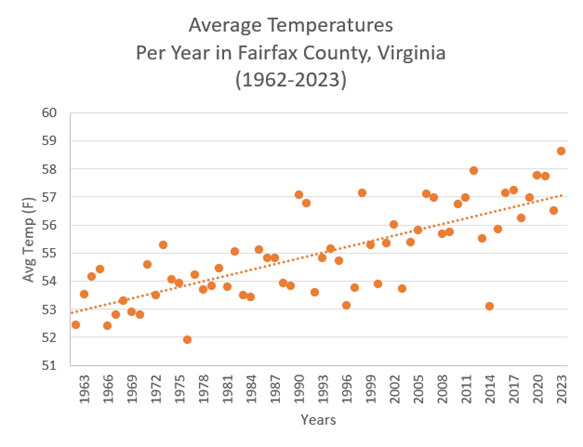Post written by Melanie Malsch and Emily Bohr, OEEC Staff Members
With holiday season right around the corner, there will be plenty of family gatherings, and consequently, the potential for spirited debates around the dinner table.
Given the landscape of current events, one of the topics that may come up is climate change. It’s a complex subject that brings up mixed feelings for many – fear, frustration, fatigue – which is why there is a whole professional field dedicated to communicating the science behind it and the solutions ahead.
But it doesn’t have to be a taboo topic.
If you’re up for it, we’d like to provide some tips and advice to help you transform your climate conversations from feeling like a sensitive subject to becoming a chance to inspire action among your family, friends, neighbors, and beyond.
The best place to start is, well, before the conversation even starts. Below are some helpful considerations to think through when approaching a potentially contentious discussion:
- What mindsets are present?
- Is anyone feeling frustrated, anxious, hardly interested, or closed off?
- Is anyone feeling excited, passionate, optimistic, or open-minded?
- What is the desired outcome?
- Is anyone trying to change the other person’s mind or pick apart their view?
- Is anyone seeking to share important information and exchange ideas?
Even if you are the only one considering these things, having a more measured approach on your side of the discussion will work wonders in allowing others to be more receptive to what you have to say.
Now that you’ve assessed the conditions of the conversation, the next step is to show that you…
#1: Know your audience. Try to avoid the urge to double down on a one-size-fits-all argument about the threat of climate change and the need for action. Consider some of the arguments below:
- Earth’s climate is getting warmer
- Climate change is caused by humans
- Governments need to do something about climate change
- We all need to do something about climate change
There are many reasons these statements may not resonate with your friends and family members as much as they do with you. They sound like they assign blame and can feel critical, or present problems too big for any one person to solve, which feels scary. Keep in mind that this kind of messaging (we call it “doom and gloom”) on climate has been around for decades and has lost meaning for lots of people.
Knowing your audience can help you reconnect them to the important messages. Try to avoid making quick judgments and writing off their views entirely. Depending on their life experiences, different aspects of climate action may appeal more than others, you just have to find what they could be!
Which leads us to our next recommendation:
#2: Look for common ground. There are myriads of ways we all benefit from taking action – emphasize those! Focusing on the positives that come with climate action, rather than the doom and gloom, is an effective way to go from contentious to consensus.
Now consider these values: 
- We all want to protect our loved ones, homes and communities
- We all want to protect nature and wildlife
- We all want to breathe clean air
- We all want our children and grandchildren to be safe, healthy, and happy
- We all want to save money over the long term
- We all want to support fair business practices
- We all want an efficient economy that works for everyone
While we might have different opinions on how to make these things happen, it’s safe to say we’d probably all agree on them! Notice how none of these use the term “climate change” – it affects so many areas of our lives that we can talk about problems and solutions without even saying the words! That’s not to say you must avoid speaking of climate change. Whether this is your first time digging into this subject with someone or your 99th time, starting with common ground can lead you to achieve small climate-related wins that you may not have expected.
For example, a person may not want to start using public transportation or buy an electric car, but they’d agree with you that it is important to protect their community against flooding. Or perhaps they feel all the concern about extreme heat is an over exaggeration, but they have really enjoy saving money on their energy bill from installing solar panels on their house.
Speaking of saving money, there are lots of other benefits to climate action. Just look at the facts…
#3: Focus on facts. When discussing climate change with your more skeptical relatives and friends, focusing on the facts is crucial for fostering productive conversations and bridging gaps in understanding. This helps provide a foundation for the conversation built on evidence that transcends personal opinions and biases.
By presenting clear, verifiable data—such as rising global temperatures, increasing frequency of extreme weather events, and observable shifts in ecosystems—we appeal to reason and encourage critical thinking in the other side of the conversation. This approach not only helps get rid of misconceptions but can demonstrate respect for diverse perspectives. At the same time, this approach emphasizes the reality of climate change.
Need some material? Here are some examples for Fairfax County specifically:
- Flash flood events in Fairfax County have become more frequent since 1990. (Overall Resilience Metrics, Climate Action Dashboard)
- The tree planting window in Fairfax County has shifted, for the first time in decades, to start later in the year and last through the winter, due to warmer climate and fewer frosts. (Fairfax County Newscenter)
- Annual average temperatures in Fairfax County have increased by 4 degrees since 1960. (Overall Resilience Metrics, Climate Action Dashboard)

And for our last tip...
#4: Keep it positive. To clarify, we don’t mean the sunshiny, pie-in-the-sky positivity or trivializing the climate crisis. What we’re referring to is a climate communication technique studied by social scientists that reframes climate action in a different light.
Think of the advice you’ve heard about living more sustainably. Does it sound like the following?
- Eat less meat
- Stop producing so much waste
- Don’t purchase fast fashion
- Avoid single use products
This advice can make people feel like they are being told what to do and people usually don’t react well to constantly hearing what they are doing wrong. Consider the positive versions of each of those actions:
constantly hearing what they are doing wrong. Consider the positive versions of each of those actions:
- Eat more plants
- Repair and repurpose items
- Purchase high-quality clothing
- Use reusable and eco-friendly alternatives
The first set may not sound like an inherently bad way to say things; however, more negative language is used in the first set rather than the second. The second set can make the changes sound more positive and more convenient and less like a wrongdoing and a burden.
We could all add something positive to our daily lives, and perhaps through your holiday conversations you’ll have inspired one more person to contribute to the collective climate effort.
Overachiever? Here are some more resources for you to peruse:
- Explore the National Oceanic and Atmospheric Association (NOAA)'s Climate Literacy Guide, a great resource of principles that can serve as discussion starters or launching points for learning about the climate crisis.
- Dive in to NASA’s Earth to Sky program, offering tons of resources for climate communication.
- NASA also has some great child-friendly resources on climate change.

Melanie Malsch joined OEEC in 2023 as a community specialist. She helps implement the county’s Resilient Fairfax plan to build community resilience to extreme heat, flooding, and severe storms. Melanie holds a degree in Environmental Studies from the University of Pittsburgh.

Emily Bohr has served as OEEC's outreach specialist since 2022, supporting the office’s communications and public outreach. She holds a degree in Environmental Studies from George Mason University and recently completed NASA's Earth to Sky course, gaining a deeper knowledge of climate communication.
Climate Matters is the blog of Fairfax County’s Office of Environmental and Energy Coordination, where we share stories, insights and information related to climate change and environmental sustainability. Posts are written by knowledgeable and passionate OEEC staff members and guest authors. To read all blog posts, visit Climate Matters.

